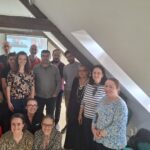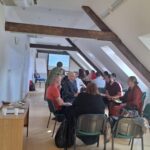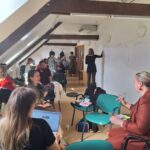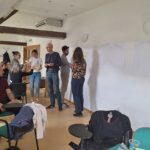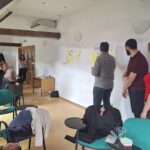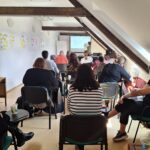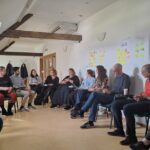International Participatory Workshop: Beyond Translation – Reflexivity, Ethics, and the Role of Interpreters in Migration Research
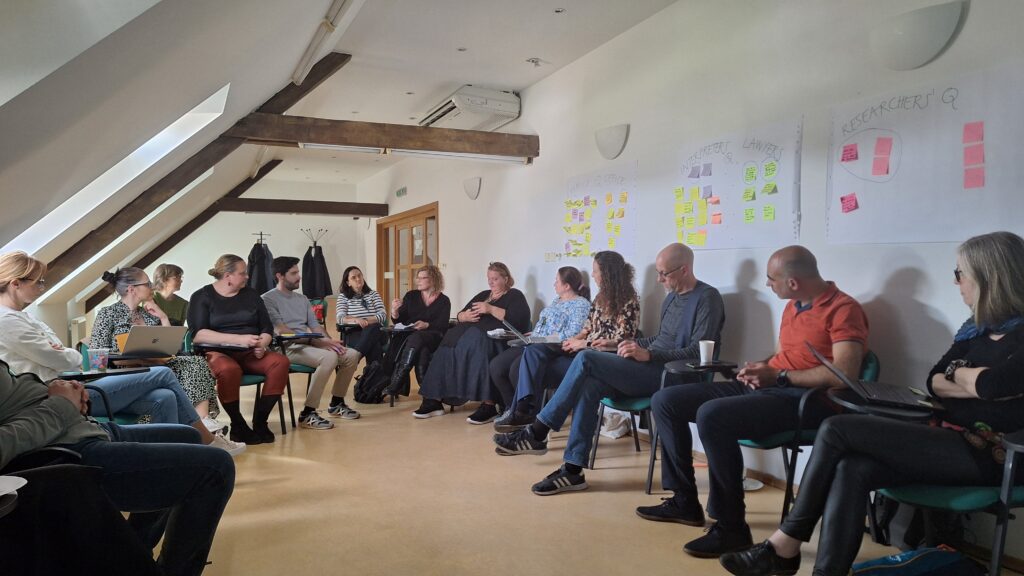
On April 24, 2025, an international expert workshop Beyond Translation: Reflexivity, Ethics, and the Role of Interpreters in Migration Research took place in Bratislava, focusing on a critical examination of the complexities of research involving interpreters, particularly in the field of transnational family studies. The event took place within the framework of COST Action CA21143 Transnational Family Dynamics in Europe, in which our colleague Martina Wilsch is actively involved as an MC member and as a co-leader (together with Esra Demirkol Colosio) of the Working Group 5 Qualitative Research (WG5Qual). It was also held in cooperation with the APVV project VV-MVP-24-0203 Family on the Edge: Current Contexts of Vulnerability and Transnational Family Transformations, which is currently being carried out at our institute.
The aim of the event was to guide participants—through interactive and experiential methods—toward a deeper understanding of ethical, reflexive, and context-sensitive approaches to working with interpreters. The workshop addressed not only the methodological implications of involving interpreters in qualitative research but also emphasized ethical dilemmas and the need for reflexivity.
Participants became acquainted with key theoretical and practical perspectives on interpretation in research, including:
Interlingual, intralingual, and intersemiotic dimensions of interpretation (Jakobson, 1959),
Narrative modes and their impact on meaning-making in research (Spotti, 2019),
The influence of interpreters on data transmission and the positionality of the researcher,
The role of interpreters as co-creators of cultural meaning rather than passive conduits,
Ethical dilemmas, power dynamics, and the phenomenon of the “invisibility of the interpreter” in the research process,
Strategies for dialogic communication and cultural mediation to uphold research integrity.
The structure of the workshop consisted of two 60-minute participatory blocks featuring practical activities, discussions, and case study analyses, followed by a closing lecture led by Mgr. Helena Tužinská, PhD., a cultural and linguistic anthropologist specializing in interpretation issues in migration research and institutional procedures (including asylum proceedings). The final afternoon block comprised an interactive methodological reflection on the participants’ own research and a discussion of potential further collaboration.
Participants gained:
A deeper understanding of the methodological challenges of interpreter-mediated research,
Reflection on their own positionality, power relations, and cultural interpretation within research interactions,
Skills for effective collaboration with interpreters,
Awareness of the active role of interpreters as co-creators of knowledge,
A critical analysis of their own ethical principles in research.
The workshop provided a unique opportunity for critical discussion, practical learning, and ethical reflection on the role of interpreters in qualitative research on transnational families.
The event was held within the framework of COST CA21143 Transnational Family Dynamics in Europe, specifically its working subgroup for qualitative research WG5Qual, and the project VV-MVP-24-0203 RONARO – Rodina na rozhraní: Súčasné súvislosti zraniteľnosti a transformácií transnacionálnej rodiny.
It was content-wise and organizationally prepared by Mgr. Martina Wilsch (Institute of Ethnology and Social Anthropology, Slovak Academy of Sciences), Esra Demirkol Colosio (Sociology Department at Çankırı Karatekin University, Turkey), and Jelena Predojević-Despić (Institute of Social Sciences, Serbia).
Pictures from the workshop @ Martina Wilsch, Helena Tužinská
